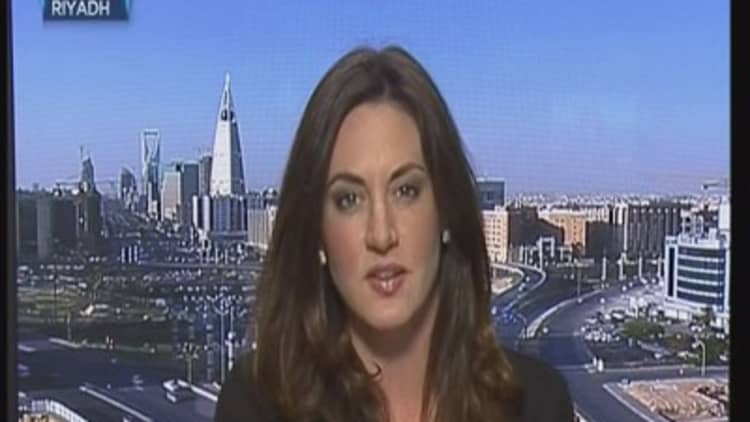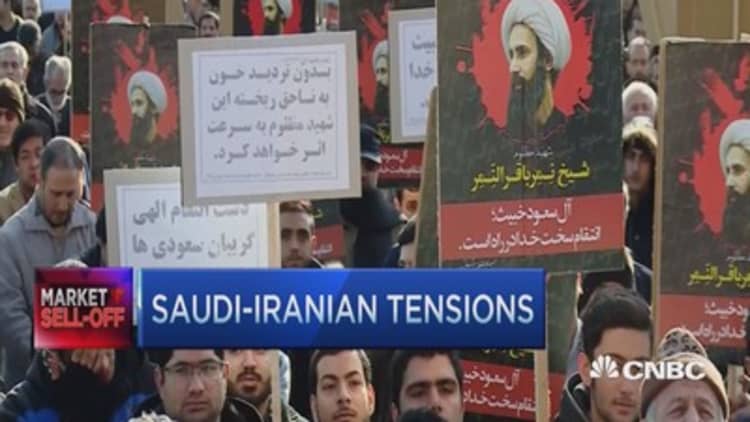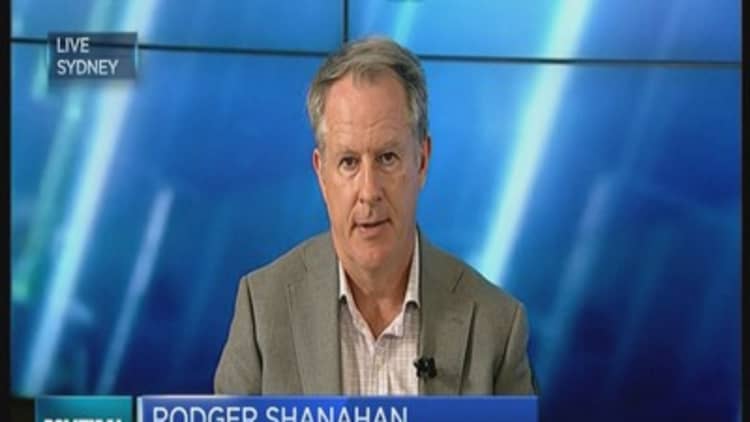


Rapidly deteriorating relations between Saudi Arabia and Iran – and, increasingly, other Middle Eastern nations – will damage peace talks in Syria and will only serve to benefit Islamic State (ISIS), the terrorist group operating in the country, analysts have warned.
Saudi Arabia and Iran, the Middle East's two opposing powerhouses, fell out spectacularly at the weekend after the Saudis executed a prominent Shiite cleric. The execution of Nimr al-Nimr, a vocal critic of Sunni-majority Saudi Arabia, was one of 47 carried out by the country against people it described as "terrorists."
In particular, the execution of the cleric prompted protests across the region and a retaliatory attack on the Saudi embassy in Iran, a Shia stronghold.
Rising tensions between the Shiite and Sunni authorities have already prompted surrounding nations to divide on sectarian lines, with Saudi Arabia's allies Bahrain, Sudan and UAE joining diplomatic action against Tehran by severing or downgrading ties with the country.
ISIS the real winner?
With the Middle East at risk of further conflict at a time when civil war is already raging in Iraq, Yemen and Syria, analysts said that any chance of peace in the near-term was unlikely.
More worryingly, they warned that ISIS, the terrorist group operating in swathes of Iraq and Syria and taking advantage of a power vacuum in both countries, could be the primary beneficiary from more unrest and division.
"The termination of Iran-Saudi diplomatic relations…comes in the context of the ongoing proxy war between Saudi Arabia and Iran, also involving Turkey and, in the case of Syria, Russia, in countries including Lebanon, Syria, Iraq, Bahrain, and Yemen," Firas Abi Ali and Anna Boyd, senior analysts at IHS Country Risk, said in a note late on Monday.
"These conflicts are likely to escalate given that Saudi accusations against Iran will serve to close off diplomatic avenues. In the meantime, the growing sectarian polarization across the region will primarily benefit Islamic State, which is promoting a sectarian narrative."
The rising hostility between Iran and Saudi Arabia has complicated the regional risk outlook with fledgling peace talks aimed at ending a five-year civil war in Syria at risk of stalling.
Read MoreIran's row with the Saudis: All you need to know
Talks are due in Geneva on January 25 and crucially involve both Saudi Arabia and Iran despite them backing opposing sides with Iran backing Syrian President Bashar al-Assad and Saudi backing rebel groups trying to oust him.
Aware of the danger to the Syrian peace talks, the United Nations and U.S. went into damage limitation mode on Monday, urging both Saudi Arabia and Iran to show restraint.
Peace process 'to stall'
U.N. Secretary-General Ban Ki-moon on Monday told both the Saudi and Iranian foreign ministers that he was extremely troubled by the break in ties, his spokesman Stephane Dujarric said in a press briefing on Monday, and "stressed the importance of continued constructive engagement by both countries in the interest of the region and beyond."
The U.N.'s special envoy for Syria was due to arrive in Riyadh on Monday and was expected to visit Iran later this week. The U.N. said the envoy would "assess the implications of the recent developments between Saudi Arabia and Iran on the momentum of the Vienna process for Syria."
Analysts believe the peace process could be directly impacted. "The termination of Iran-Saudi diplomatic relations will likely ensure that progress on the Syrian peace process and the anticipated dialogue between the government and the opposition will stall," IHS' Abi Ali and Boyd, said.
Their perspective was echoed elsewhere, with Citi's global political analysts, among whom Tina Fordham, managing director and chief global political analyst at Citi, warning in a note on Monday that the "most immediate geopolitical impact will be to undermine the diplomatic process on Syria conflict."
"That said, we believe the substance and prospects of negotiations in the longer term have been and will continue to be dependent more on global powers, from Washington to Moscow, working together to bridge regional differences, including over the future of Assad," Fordham and her colleagues said.
"But the list of obstacles remains daunting, and failure to find a diplomatic solution in Syria also bears implications for refugee flows to Europe, another key political risk for 2016," they warned.



